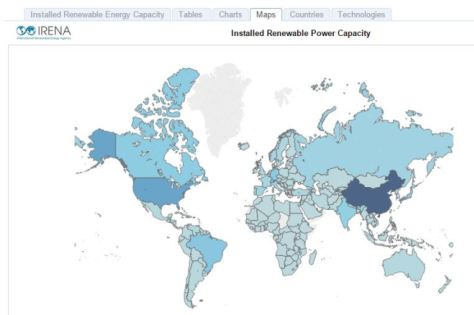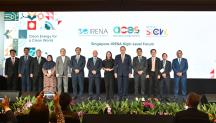

Renewable Energy Targets Quadrupled Globally Since 2005
Newsletter
Renewable energy targets are now a defining feature of the global energy landscape, according to a new report by IRENA. Renewable Energy Target Setting, launched on the side lines of IRENA’s ninth Council meeting, finds that 164 countries have adopted at least one type of renewable energy target, up from just 43 countries in 2005. Two more countries, Canada and the United Arab Emirates, have set renewable energy targets at the sub-national level.
“Renewable energy targets have emerged as a popular mechanism to set national and regional economies on the path towards a more secure and sustainable energy future,” said IRENA Director-General Adnan Z. Amin. “They provide an important signal to the industry and can help to align stakeholders by creating a clearer, common vision for the development of the energy sector.”
Developing and emerging economies are leading the adoption of targets, accounting for 131 of the 164 countries with renewable energy targets. The majority of countries focus on the electricity sector – 150 countries have renewable electricity targets – but commitments in other sectors are also on the rise. The number of countries setting targets for the heating/cooling sector increased from two countries in 2005 to 47 today. Similarly, renewable transport targets have more than doubled from 27 countries in 2005 to 59 today.
“Governments are increasingly adopting renewable energy targets to meet multiple objectives including energy security, environmental sustainability and socio-economic benefits,” said Mr. Amin. “The rapid growth of targets is just one more signal of the world’s ongoing shift towards renewable energy and away from fossil fuels.”






